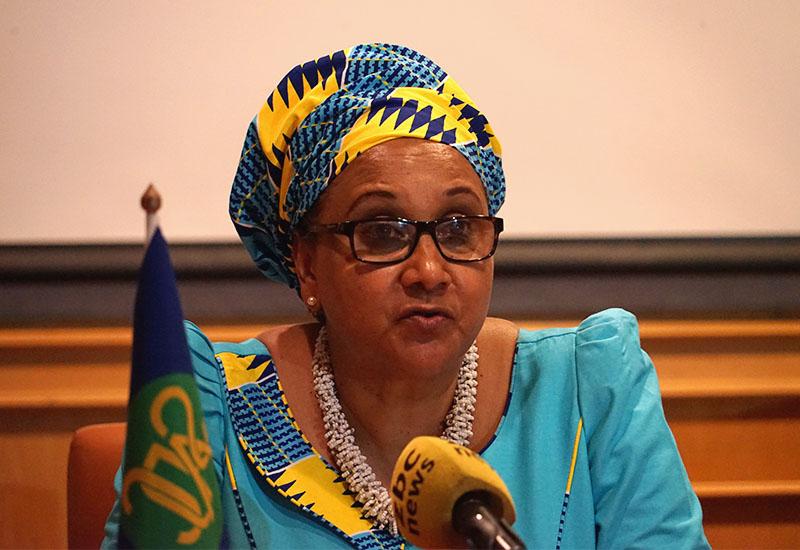Africa-Press – Tanzania. THE Southern African Development Community(SADC) member states have been called on to expedite review and modernisation of the regional cyber security model laws to minimise potential cyber threats and risks.
SADC Executive Secretary, Dr Stergomena Tax made the remark yesterday at the official opening of the regional bloc Committee of Ministers Responsible for Transport, ICT, Information and Meteorology in a virtual meeting.
She said that member states should also put in place National Cyber Security Strategy to secure the cyberspace and unlock the full potential of the digital transformation.
“It is important to note that as we make advances in ICT in terms of internet and mobile penetration, we also become more exposed to potential cyber threats and risks, thus it is important for the region to expedite the review of laws,” she said.
She noted that it is encouraging that all member states without national Computer Incident Response Teams (CIRTs) have made a commitment to have them in place by December 2021.
“This will be a milestone of its kind for Africa, let us remain resolute and achieve this milestone as planned,” she said.
In the postal sector, she said that the ongoing postal digital transformation efforts to ensure long-term relevancy and diversity are commendable and need to be embraced by all member states.
Dr Tax further said that since the regional bloc prepares for the post-pandemic era, and implementation of the SADC Vision 2050 and the SADC Regional Indicative Strategic Development Plan (RISDP) 2020-30, member states need to redouble their efforts to harness the potential of digital technologies.
“This also calls for all stakeholders to work together and explore innovative approaches and partnerships that will enhance accessibility, affordability, and connectivity to every SADC citizen,” she said.
She said that as member states celebrate 40 years of its existence, it has recorded notable achievements in transportation, ICT, Information and Meteorology sub-sectors. Dr tax said that the Protocol on Transport, Communications and Meteorology has been effectively implemented, whereby a number of programmes and projects have been implemented.
The programmes include the development of Model Legislative Provisions (MLPs) that have served as guidelines for implementation of agreed policies. She noted that a SADC Corridor Management Strategy was approved in 2008, and has served as the basic framework for cooperation and coordination in transport integration.
Dr Tax also said that the regional community managed to establish the SADC Climate Services Centre that has contributed to enhancement of the capacity of the region and dissemination of timely and credible meteorological and climate information. The information has been used for socio-economic planning and disaster risk management.
Dr Tax said that development and implementation of the SADC Regional Infrastructure Development Master Plan, has enabled implementation of a number of projects in Transport, Energy and ICT which facilitated cross-border transportation, movement of goods and service.







